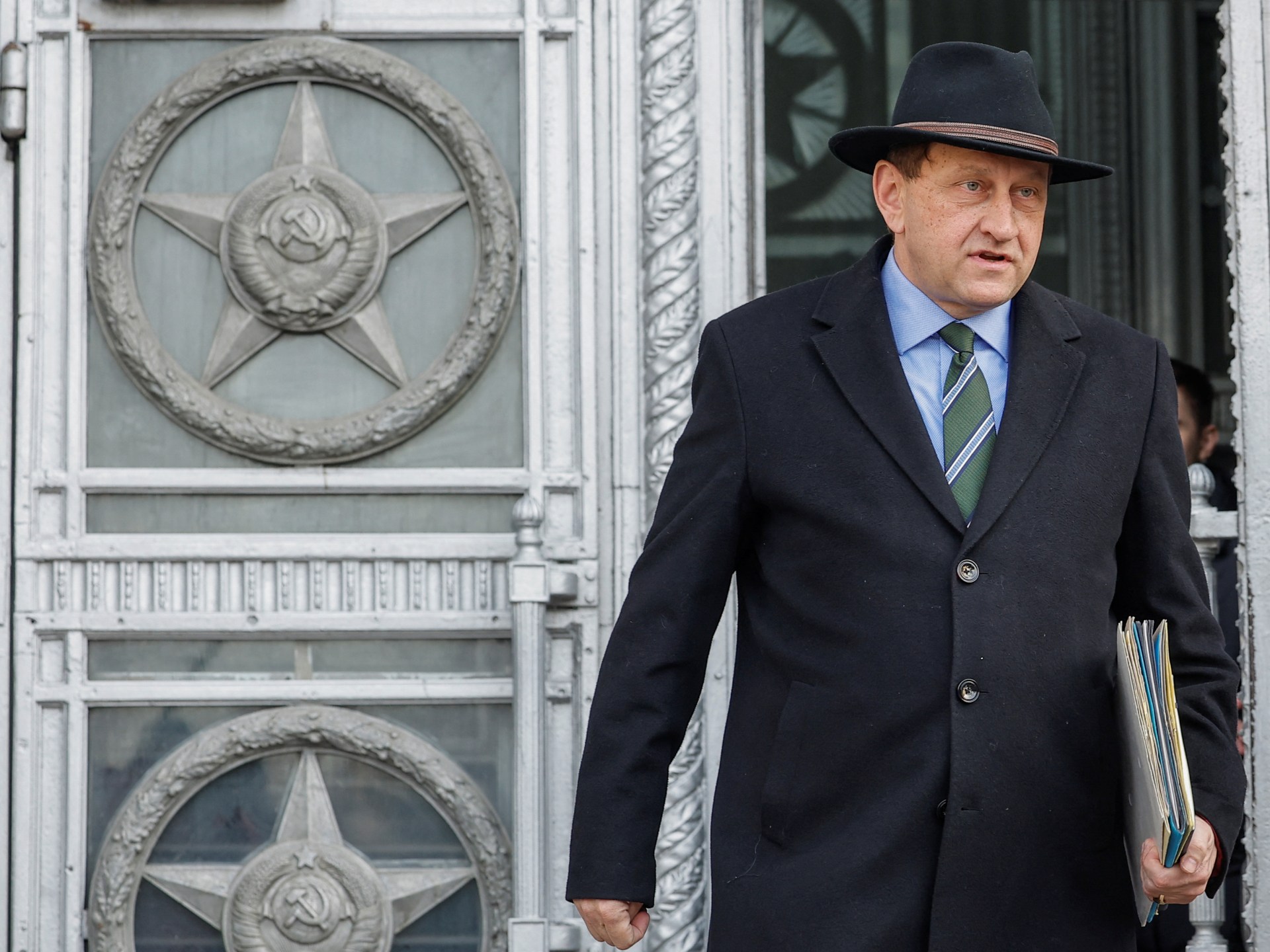
[ad_1]
Berlin’s recall of envoy extends diplomatic tension on eve of Putin’s inauguration.
Germany has recalled its ambassador to Russia in protest against a series of cyberattacks.
Berlin recalled Alexander Graf Lambsdorff on Monday, three days after accusing Moscow of cyberattacks on the governing Social Democratic Party (SDP) and the country’s defence, aerospace, and IT companies. The envoy’s return was ordered just a day before the inauguration of Russian President Vladimir Putin.
The ambassador “has been called back for consultations and will stay in Berlin for a week and then return to Moscow”, a spokesperson for the German Foreign Office told reporters.
Germany will not be represented at Putin’s inauguration for his next six-year term in office, which was sealed by an overwhelming victory at elections in March, on Tuesday, the spokesperson noted.
Berlin summoned the Russian ambassador on Friday in protest over a campaign that it says was launched two years ago by a group linked to Moscow’s GRU military intelligence agency.
Citing an investigation into a 2023 cyberattack on the SPD, which leads the governing coalition, Foreign Minister Annalena Baerbock accused the APT28 group, which is “steered by the military intelligence service of Russia”.
The group, also known as Fancy Bear, has been accused of dozens of cyberattacks around the world.
The Ministry of Interior said German companies, including in the defence, aerospace and information technology sectors, as well as targets related to Russia’s war in Ukraine, were also a focus of the attacks.
A hacking campaign began at least as early as March 2022, a month after Russia launched its invasion of Ukraine, the investigation found. Emails at the SPD’s headquarters were accessed from December that year, the ministry said.
“It was a state-sponsored Russian cyberattack on Germany, and this is absolutely intolerable and unacceptable and will have consequences,” Baerbock declared.
Rocky relations
Russia has denied past allegations by Western governments of orchestrating cyberattacks.
Last week, the Russian embassy in Berlin “categorically rejected the accusations that Russian state structures were involved in the given incident … as unsubstantiated and groundless”.
The accusations come at a time of heightened anxiety in Europe over the suspected Russian role since Moscow’s invasion of Ukraine in 2022 and in the run-up to European elections next month.
The Czech Republic said last week that APT28 had targeted its institutions.
Amid the claims, made just before the inauguration of Putin – on whose election victory the West has voiced doubts, diplomatic tension has been rising.
French sources told the Reuters news agency on Monday that Paris will send its ambassador to Russia to the inauguration, but added that France had taken note of the result of Russia’s March 18 election, and strongly condemned the repressive context in which it was held.
State news agency RIA reported on Monday that the Russian Ministry of Foreign Affairs had summoned the British ambassador to Russia. The ministry did not give a reason.
[ad_2]
Ahmed Ibrahim
That’s good